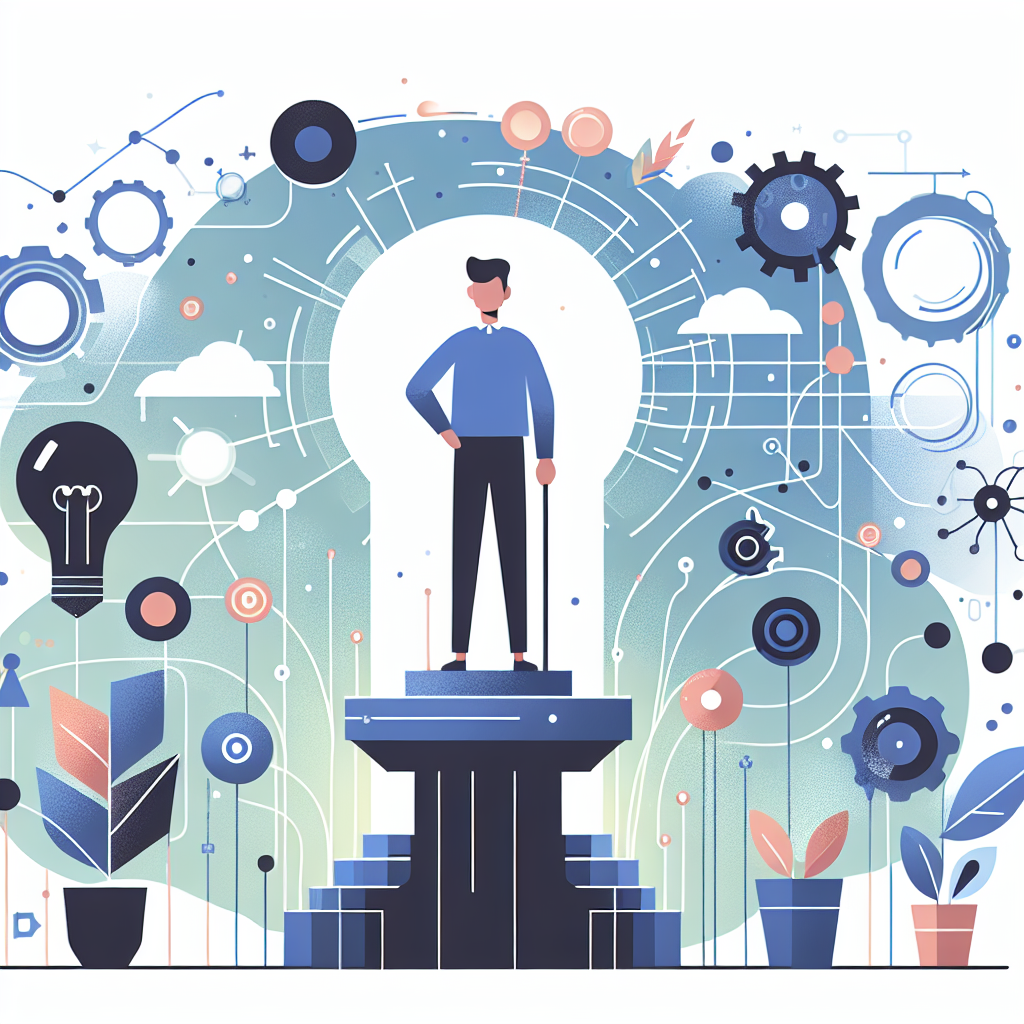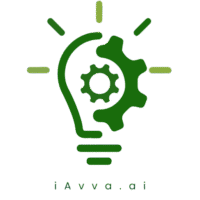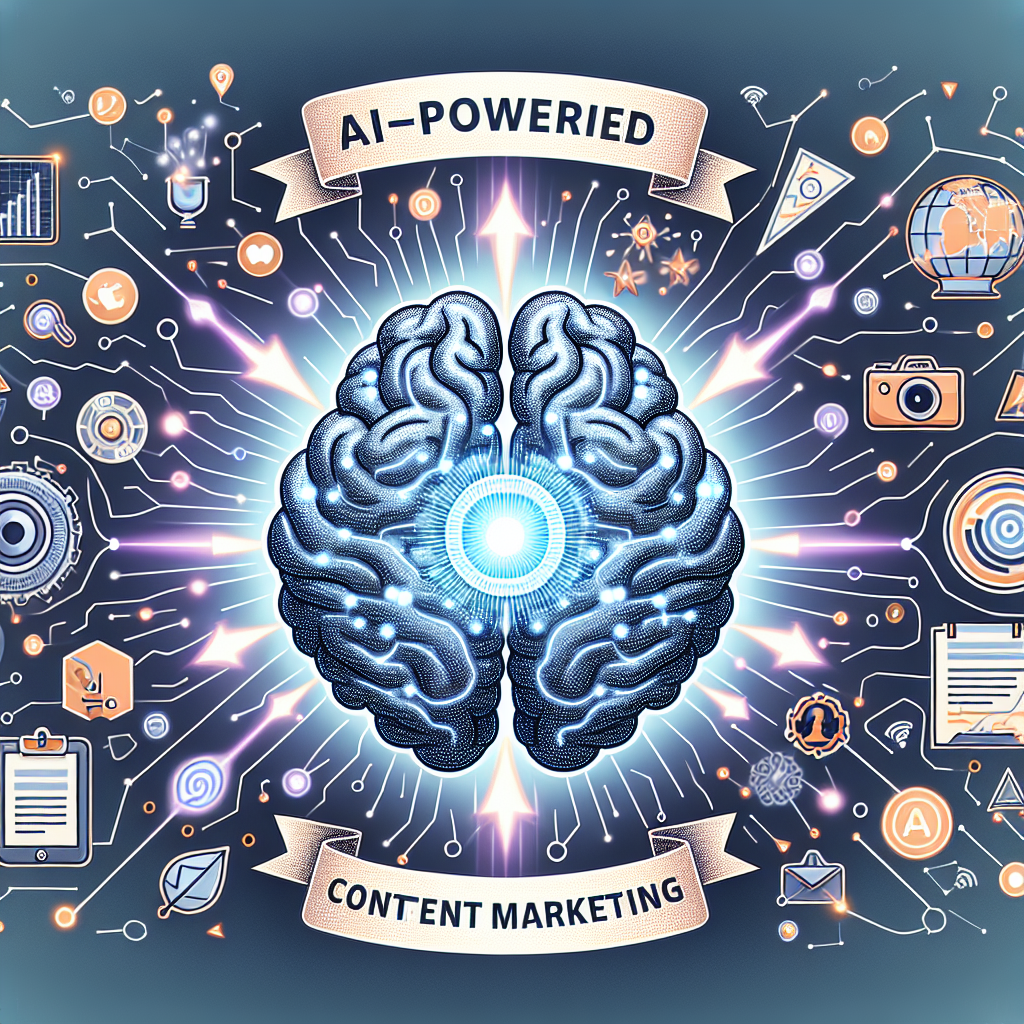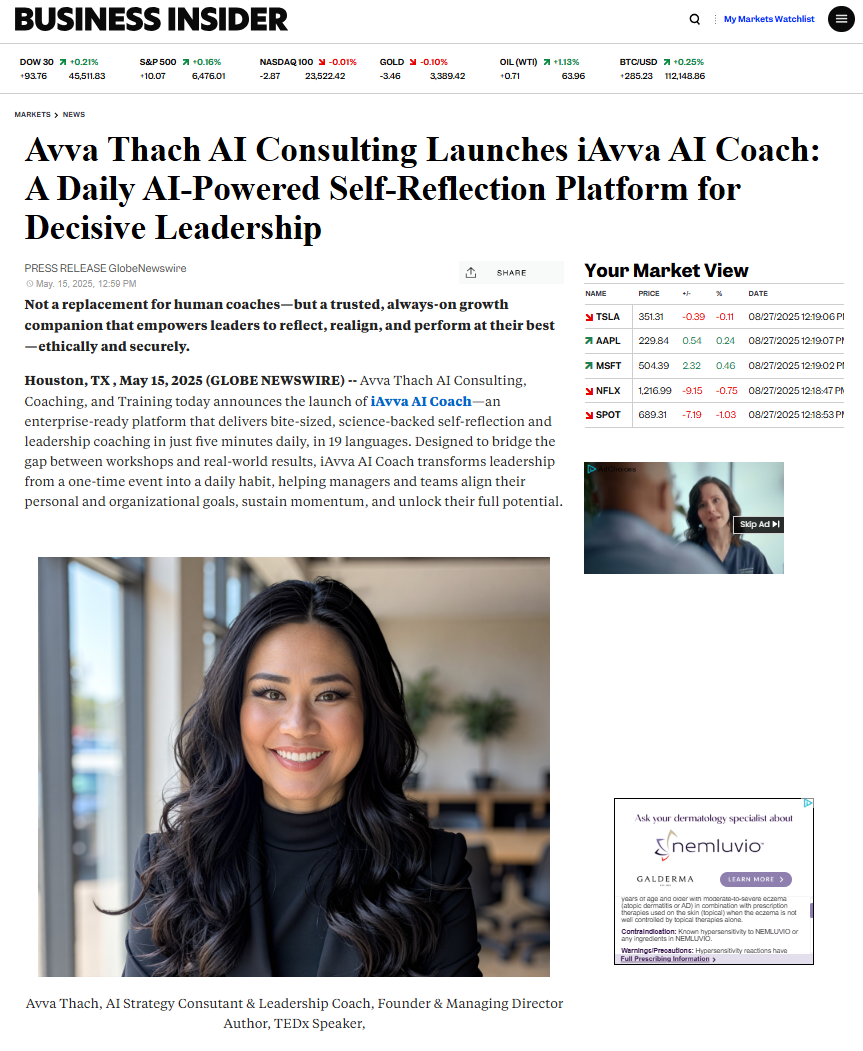How to Lead Successfully in the Age of Artificial Intelligence
Introduction
Welcome to the brave new world where leadership in AI isn’t just a buzzword – it’s a necessity! As we plunge headfirst into a future dominated by artificial intelligence, the role of leaders is evolving faster than you can say “machine learning.” If you’re still navigating the waters of traditional leadership, it’s time to grab your surfboard and catch this wave of change.
The impact of AI on leadership is profound. It’s not just about having a shiny new tool in your toolkit; it’s about rethinking how we lead teams and organizations. Leaders today must embrace AI-driven leadership strategies that foster innovation while balancing human and AI-led teams. This is where the magic happens – when technology meets human insight!
So, what does it mean to lead with artificial intelligence? For starters, it means understanding that AI is not here to replace us but to enhance our capabilities. Think of AI as your trusty sidekick, ready to analyze data faster than you can say “big data,” allowing you to focus on what really matters: people.
In this blog post, we’ll explore key aspects of artificial intelligence leadership. We’ll discuss essential leadership skills in AI, innovative strategies for integrating AI into organizational strategy, and the importance of ethical leadership in AI. You’ll also discover how to cultivate change management skills for AI projects and leverage data analytics for effective decision-making with AI tools.
Did you know? The AI market is projected to reach $1.59 trillion by 2030! (Source: Statista) This staggering growth highlights the urgency for leaders to adapt their strategies accordingly.
As we dive deeper into this topic, keep in mind that successful leadership in this age isn’t just about adopting technology; it’s about fostering an inclusive environment where diverse voices contribute to shaping the future of work. Whether you’re leading a tech startup or steering a large corporation, understanding how to navigate these waters will set you apart as a thought leader in artificial intelligence.
Buckle up! The journey towards becoming a future-ready leader with artificial intelligence expertise starts now.

Understanding AI’s Impact on Leadership
As we navigate the evolving landscape of leadership in AI, it’s essential to grasp the role that artificial intelligence plays in modern organizations. AI is not merely a tool; it’s a transformative force reshaping how leaders interact with their teams and make decisions. The integration of AI into leadership roles is akin to adding a turbocharger to a car-it enhances performance, efficiency, and adaptability.
The Role of AI in Modern Organizations
In today’s fast-paced business environment, AI is revolutionizing traditional leadership models. Leaders are now expected to leverage AI-driven leadership strategies that enhance collaboration and innovation. Here are some key areas where AI is making waves:
- Data-Driven Decision Making: Leaders can harness data analytics powered by AI tools to make informed decisions swiftly, ensuring that their strategies align with real-time insights.
- Enhanced Team Collaboration: With AI facilitating communication and project management, leaders can foster more cohesive teams that thrive on collaboration.
- Personalized Employee Development: AI can help tailor training programs for employees based on their individual strengths and learning styles, thus enhancing overall team performance.
Challenges and Opportunities Presented by AI
The integration of AI into leadership roles also brings its own set of challenges. Understanding these hurdles is crucial for effective leadership skills in AI. Here are some common challenges:
- Cultural Resistance: Employees may resist adopting new technologies due to fear or uncertainty about job security.
- Skill Gaps: Not all leaders are equipped with the necessary skills to implement and manage AI tools effectively.
- Ethical Considerations: Leaders must navigate the moral implications of using AI, ensuring transparency and fairness in decision-making processes.
However, these challenges also present growth opportunities. For instance, leaders who embrace transformational leadership with AI can drive change by fostering an inclusive environment where diverse perspectives contribute to innovative solutions.
The Evolving Definition of Leadership in the Context of AI
The definition of leadership is evolving as we integrate artificial intelligence into our organizational frameworks. Today’s leaders must embody a blend of traditional leadership qualities while also embracing new competencies tailored for the digital age. Here’s what this looks like:
- Adaptive Leadership: The ability to pivot strategies based on data insights provided by AI systems is crucial for success.
- Cultural Intelligence: Understanding diverse perspectives within teams enhances collaboration and innovation, a must-have for women in AI leadership.
- Emotional Intelligence (EQ): Balancing human intuition with machine learning insights creates a human-centric approach to decision-making.
A study found that 68% of leaders recognize that integrating AI strategies with coaching significantly boosts effectiveness!
The future-ready leaders will be those who not only adapt but thrive by integrating technology into their leadership style while maintaining strong human connections within their teams. As we look ahead, it’s clear that understanding the impact of AI on leadership will be pivotal for anyone aiming to excel in executive positions.
If you’re ready to embrace this shift and cultivate your skills for the future of leadership in AI, start exploring how you can integrate these insights into your organizational strategy today!

Key Leadership Skills for the Age of AI
In the realm of leadership in AI, it’s not just about knowing your algorithms; it’s about mastering a new set of skills that blend emotional intelligence with technological savvy. As AI continues to infiltrate our workplaces, leaders must adapt and evolve. Here are three critical skills that will define successful leaders in this brave new world.
Emotional Intelligence and Empathy
First up on our leadership checklist is emotional intelligence (EQ). This isn’t just a nice-to-have; it’s a must-have! In an age where machines can analyze data faster than you can say “deep learning,” the human touch becomes even more vital. Leaders who can connect emotionally with their teams will foster trust and collaboration, which are essential for navigating the complexities of AI integration.
Consider this: when team members feel understood and valued, they are more likely to embrace change and contribute their best ideas. Leaders should actively listen, show empathy, and create an environment where feedback flows freely. This human-centric approach not only enhances team dynamics but also drives innovation- a win-win!
Adaptability and Resilience
The second skill on our list is adaptability. As we all know, change is the only constant-especially in technology! Leaders need to be like chameleons, ready to shift strategies based on real-time data insights provided by AI systems. This means being open to new ideas, willing to pivot when necessary, and fostering a culture that embraces experimentation.
Resilience goes hand-in-hand with adaptability. The road to integrating AI into your organization will have its bumps-think cultural resistance or skill gaps-but resilient leaders view challenges as opportunities for growth rather than roadblocks. They cultivate change management skills that empower their teams to thrive amidst uncertainty.
Courage to Embrace Change and Innovation
Last but certainly not least is the courage to embrace change and innovation. It takes guts to lead a team into uncharted territory-especially when that territory involves cutting-edge technologies like AI! But here’s the kicker: bold leadership often leads to groundbreaking results.
Leaders who champion innovation encourage their teams to think outside the box and take calculated risks. They understand that failure is often a stepping stone toward success. By creating a safe space for experimentation, they inspire creativity and drive progress within their organizations.
Did you know? A recent study found that 75% of companies believe practical training in innovative leadership is essential for successful digital transformation!
In conclusion, mastering these key leadership skills will empower you to navigate the complexities of artificial intelligence leadership. As you cultivate emotional intelligence, adaptability, resilience, and courage within yourself and your teams, you’ll be well-equipped to lead effectively in this transformative era.
If you’re ready to dive deeper into these skills or explore how they can be integrated into your organizational strategy, let’s connect! Together we can shape the future of leadership in AI.

Strategies for Successful Leadership in AI Integration
As we venture further into the realm of leadership in AI, it’s crucial to adopt strategies that foster a culture of collaboration and innovation. After all, integrating artificial intelligence isn’t just about the technology; it’s about people. Here are some key strategies to ensure your leadership shines as bright as a supernova in the galaxy of AI.
Creating a Culture of Collaboration and Innovation
Picture this: a workplace where ideas flow as freely as coffee on Monday mornings. That’s the kind of culture you want to cultivate! Leaders must encourage open communication and collaboration among teams, breaking down silos that often hinder innovation. Here’s how:
- Foster Cross-Functional Teams: Encourage collaboration across different departments. When diverse perspectives come together, creativity sparks like fireworks!
- Celebrate Failures: Create an environment where failure is viewed as a stepping stone rather than a setback. This will motivate your team to take risks and innovate without fear.
- Encourage Continuous Learning: Provide opportunities for employees to learn about AI technologies and their applications. Knowledge-sharing sessions can turn your team into AI aficionados!
Developing Clear Communication Channels Across Teams
The key to successful AI leadership strategies? Communication that flows smoother than a well-oiled machine! Establishing clear channels helps ensure everyone is on the same page when integrating AI into organizational processes.
- Utilize Collaboration Tools: Implement tools like Slack or Microsoft Teams for real-time communication, ensuring that team members can share insights and updates instantly.
- Regular Check-Ins: Schedule regular meetings to discuss progress on AI initiatives. This keeps everyone aligned and allows for quick adjustments if needed.
- Create Feedback Loops: Encourage team members to provide feedback on AI projects. This not only improves processes but also fosters a sense of ownership among employees.
Empowering Employees Through Training and Development Initiatives
Your workforce is your greatest asset, especially when it comes to navigating the complexities of artificial intelligence leadership. Investing in training programs is essential for empowering employees to leverage AI tools effectively.
- Tailored Training Programs: Develop training sessions based on specific roles within your organization. This ensures that employees receive relevant information tailored to their needs.
- Cultivate Change Management Skills: Equip leaders with skills necessary for managing change during AI integration. Understanding how to guide teams through transitions can make or break an initiative.
- Leverage Data Analytics Tools: Teach your teams how to use data analytics effectively in decision-making processes. This will enable them to harness insights from AI systems confidently.
A staggering 68% of leaders believe that integrating AI strategies with coaching significantly boosts effectiveness!
The future of leadership in AI hinges on creating an environment where collaboration thrives, communication flows seamlessly, and employees feel empowered through continuous learning opportunities. By implementing these strategies, you’ll not only enhance your organization’s adaptability but also position yourself as a leader ready for the challenges ahead.
If you’re eager to explore more about AI-driven leadership, consider reaching out for tailored coaching or training programs designed specifically for your organization’s needs!

Building a Future-Ready Workforce
As we dive deeper into the realm of leadership in AI, one thing becomes crystal clear: building a future-ready workforce is not just an option; it’s a necessity. The rapid evolution of artificial intelligence means that organizations must adapt their talent strategies to meet new demands. So, how do we ensure our teams are equipped for the AI revolution? Let’s break it down.
Identifying Skill Gaps Related to AI Technologies
The first step in future-proofing your workforce is identifying skill gaps related to AI technologies. Think of it like a treasure hunt; you need to know where the gaps are before you can fill them with shiny new skills. Here are some key areas to focus on:
- Technical Skills: Does your team have the necessary technical know-how to work with AI tools? If not, it’s time for some serious upskilling.
- Data Literacy: Understanding how to interpret data is crucial in an AI-driven environment. Make sure your employees can decipher data insights like seasoned detectives.
- Soft Skills: Skills like collaboration, communication, and emotional intelligence are equally important as they will help bridge the gap between humans and machines.
By conducting regular assessments and surveys, you can identify these gaps and tailor your training initiatives accordingly. Remember, knowledge is power!
Implementing Tailored Training Programs for Employees
Once you’ve pinpointed those skill gaps, it’s time to roll out tailored training programs that will empower your employees. Think of this as crafting a bespoke suit-one size does not fit all! Here’s how to get started:
- Create Role-Specific Training: Develop training modules tailored to specific roles within your organization. A data scientist’s needs will differ vastly from those of a marketing manager.
- Leverage Online Learning Platforms: Utilize platforms like Coursera or Udacity that offer courses on AI technologies and applications. This allows employees to learn at their own pace while still gaining valuable knowledge.
- Encourage Peer Learning: Foster an environment where employees can share what they’ve learned with each other. Knowledge-sharing sessions can spark innovation and collaboration!
A well-trained workforce is your best defense against the challenges posed by AI integration.
Encouraging Continuous Learning and Adaptability Among Teams
The final piece of the puzzle involves fostering a culture of continuous learning and adaptability among teams. In a world where change is the only constant, being adaptable is key! Here’s how you can cultivate this mindset:
- Create Learning Pathways: Develop clear pathways for career progression that include ongoing education in AI technologies and leadership skills in AI.
- Cultivate Curiosity: Encourage team members to ask questions and explore new ideas related to AI. A curious mind is more likely to embrace change!
- Recognize Efforts: Celebrate achievements in learning and adaptation-recognition goes a long way in motivating teams!
A staggering 68% of leaders believe that integrating AI strategies with coaching significantly boosts effectiveness!
The future-ready leaders will be those who foster an environment where learning never stops, allowing their teams to thrive amidst technological changes. By prioritizing skill development, tailored training programs, and continuous learning, you’ll position your organization as a leader in artificial intelligence.
If you’re ready to take action on these strategies or explore tailored coaching programs designed specifically for your organization’s needs, let’s connect! Together we can build a workforce that’s not just ready for the future but excited about it!
Navigating Ethical Considerations in AI Leadership
As we embrace the age of leadership in AI, ethical considerations are not just an afterthought; they are at the forefront of effective leadership strategies. With great power (and algorithms) comes great responsibility. Leaders must navigate a landscape where ethical dilemmas can arise at every turn, ensuring that their use of artificial intelligence aligns with core values and principles.
The Importance of Ethical Frameworks in AI Deployment
First things first: establishing a strong ethical framework is crucial for any organization deploying AI technologies. Think of it as the moral compass guiding your ship through uncharted waters. Here’s why it matters:
- Trust Building: Transparency in how AI decisions are made fosters trust among employees and customers alike. Trust is the currency of effective leadership.
- Risk Mitigation: A solid ethical framework helps identify potential risks associated with AI usage, allowing leaders to address them before they escalate proactively.
- Compliance and Accountability: With regulatory scrutiny on the rise, adhering to ethical guidelines ensures compliance with laws and regulations, protecting your organization from legal repercussions.
By embedding ethical considerations into your AI leadership strategies, you not only safeguard your organization but also contribute to a more responsible tech ecosystem.
Diversity and Inclusion in AI-Driven Decision-Making Processes
Diversity isn’t just a buzzword; it’s a key ingredient for successful artificial intelligence leadership. When diverse perspectives are included in decision-making processes, the outcomes are richer and more innovative. Here’s how to ensure inclusivity:
- Diverse Teams: Assemble teams with varied backgrounds, experiences, and viewpoints. This diversity will lead to more comprehensive AI solutions that cater to a wider audience.
- Inclusive Algorithms: Be mindful of biases that can creep into AI algorithms. Regular audits ensure that your systems promote fairness rather than perpetuating existing inequalities.
- Cultural Competence Training: Equip leaders with training on cultural competence to enhance understanding and collaboration across diverse teams.
A commitment to diversity not only enriches decision-making but also aligns with the principles of ethical leadership in AI, ensuring that all voices are heard and valued.
Ensuring Transparency and Accountability in AI Operations
The final piece of our ethical puzzle is transparency and accountability. In an era where machines make decisions based on complex algorithms, it’s vital for leaders to maintain clarity about how these decisions are made.
- Clear Communication: Articulate how AI systems operate within your organization. Employees should understand the role of AI in decision-making processes without feeling like they’re being left in the dark.
- Audit Trails: Implement mechanisms for tracking decisions made by AI systems. This accountability ensures that if something goes awry, there’s a clear path back to understanding what happened.
- User Feedback Loops: Encourage feedback from users interacting with AI systems. This helps identify areas for improvement while fostering a sense of ownership among team members.
A recent study found that organizations prioritizing transparency see an increase in employee engagement by 30%!
Navigating these ethical considerations is essential for leaders aiming to excel in AI-driven leadership. By establishing strong frameworks, promoting diversity, and ensuring transparency, you’ll not only enhance your organization’s reputation but also contribute positively to the future landscape of artificial intelligence.
If you’re ready to take actionable steps towards integrating these ethical practices into your organizational strategy or need guidance on developing your team’s skills for effective leadership in this arena, let’s connect! Together we can pave the way for responsible innovation.
The Role of Coaching and Mentorship in Leading with AI
As we embrace the transformative power of leadership in AI, coaching and mentorship are becoming indispensable. In a landscape where algorithms can analyze data faster than a speeding bullet, human insight remains irreplaceable. Leaders need guidance to navigate this new terrain, making coaching and mentorship pivotal for success.
The Significance of Leadership Coaching in the Digital Age
In the age of artificial intelligence, traditional leadership models are being challenged like never before. Leaders must evolve, adopting AI leadership strategies that blend technical skills with emotional intelligence. This is where coaching comes into play:
- Personalized Development: Coaching helps leaders identify their strengths and weaknesses, tailoring development plans that align with their unique roles in an AI-driven environment.
- Real-Time Feedback: Regular coaching sessions provide leaders with immediate feedback on their decision-making processes, enabling them to adapt quickly to changing circumstances.
- Building Confidence: With the rapid changes brought by AI, leaders often face uncertainty. Coaching fosters confidence, allowing them to lead their teams through digital transformation with clarity.
Creating Mentorship Programs Focused on AI Skills Development
A robust mentorship program can serve as a launchpad for developing future-ready leaders in artificial intelligence. Here’s how organizations can establish effective mentorship initiatives:
- Pairing Experienced Mentors with Emerging Leaders: Connect seasoned leaders who understand AI technologies with those who are new to the field. This knowledge transfer is invaluable!
- Setting Clear Objectives: Define specific goals for mentorship relationships focused on developing skills necessary for AI-driven leadership. This ensures both parties are aligned.
- Encouraging Collaboration: Foster an environment where mentors and mentees collaborate on real-world projects involving AI integration. Hands-on experience accelerates learning!
Fostering a Supportive Environment for Leaders to Thrive with Technology Integration
A supportive workplace culture is essential for nurturing leadership skills in AI. Here’s how organizations can create an environment conducive to growth:
- Cultivating Psychological Safety: Encourage open dialogue about challenges faced when integrating AI tools. When team members feel safe sharing concerns, they’re more likely to innovate.
- Pursuing Continuous Learning Opportunities: Provide ongoing training sessions that keep leaders updated on the latest advancements in AI technology and its applications within their roles.
- Celebrating Successes and Learning from Failures: Recognize achievements related to AI initiatives while treating setbacks as learning opportunities rather than failures. This approach fosters resilience!
A staggering 68% of leaders believe integrating coaching into their leadership strategies significantly boosts effectiveness!
The role of coaching and mentorship is crucial in shaping effective leaders who can harness the potential of artificial intelligence while maintaining strong human connections within their teams. As you embark on this journey toward successful leadership in the age of AI, consider how you can implement these strategies within your organization.
If you’re ready to explore tailored coaching programs or develop mentorship initiatives focused on enhancing your organization’s leadership capabilities in AI, let’s connect! Together, we can shape a future where technology enhances human potential rather than replacing it.
Conclusion: Embracing Change as a Leader in the Age of AI
As we wrap up our exploration of leadership in AI, it’s clear that the winds of change are blowing stronger than ever. The future of leadership in AI isn’t just about keeping up with technology; it’s about embracing a mindset that thrives on adaptation, collaboration, and ethical considerations.
The New Leadership Paradigm
In this brave new world, leaders are not just commanders issuing orders from the top. Instead, they are becoming collaborative leaders with artificial intelligence, engaging their teams in meaningful dialogues and leveraging diverse perspectives to drive innovation. This shift requires a fundamental rethinking of traditional leadership roles.
- Embrace Continuous Learning: The pace of technological advancement means that even seasoned leaders must commit to lifelong learning. Invest in your own development and encourage your team to do the same.
- Cultivate Emotional Intelligence: Balancing human intuition with machine-driven insights is key. Leaders who can connect with their teams on an emotional level will foster trust and loyalty, essential elements for success.
- Champion Ethical Leadership: As AI technologies evolve, so must our ethical frameworks. Leaders must ensure transparency and accountability in all AI-driven decisions to build trust within their organizations.
Navigating Challenges with Confidence
The challenges of AI in leadership roles can seem daunting. From cultural resistance to skill gaps, these hurdles require leaders who are not just reactive but proactive. By cultivating adaptive leadership and artificial intelligence, you can turn challenges into opportunities for growth.
Consider this: organizations that prioritize diversity in their leadership teams are better equipped to navigate these challenges. By bringing together varied perspectives, you enhance problem-solving capabilities and foster innovation at every level.
A staggering 68% of leaders believe integrating AI strategies with coaching significantly boosts effectiveness!
Your Next Steps as a Future-Ready Leader
The journey towards effective AI-driven leadership is ongoing. Here are some actionable steps you can take today:
- Create an Inclusive Environment: Ensure that everyone on your team feels valued and heard. This will encourage open dialogue about AI integration and foster creativity.
- Invest in Training Programs: Equip your team with the skills they need to thrive in an AI-enhanced workplace through tailored training initiatives focused on both technical skills and soft skills.
- Pursue Mentorship Opportunities: Seek out mentors who can guide you through the complexities of leading with artificial intelligence while also mentoring others to create a cycle of knowledge sharing.
If you’re ready to step into this new era of leadership, consider reaching out for tailored coaching or training programs designed specifically for your organization’s needs! Together, we can pave the way for responsible innovation that enhances human potential while embracing the power of technology.










Leave a Reply